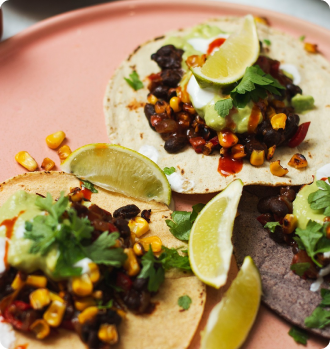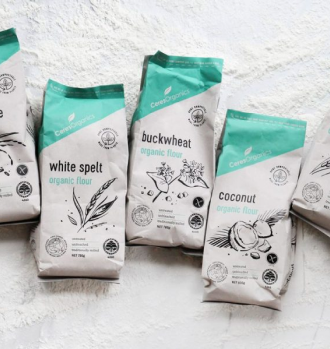
You might remember when almond butter went up a tonne last year, we do. Well rather than risk that happening again, we began working with an almond farming company in Chile to transition their crops to organic. They're not there yet, it takes several years, but they're getting there. And these 'in conversion to organic' almonds are now being made into beautiful almond butter. Read on below for the full story.
Why we need to grow organic almonds outside of California
California sure loves keeping all the good stuff to itself: the movie biz, sunshine, Coachella and of course almonds. About 80% of the worlds almond supply comes from the golden state, now can’t you hear your Dad saying “don’t put all your eggs in one basket kiddo”. We think the same of putting most of the worlds precious almonds in one big dry state – it’s just not sensible, right?
Right. We all found that out the hard way a few years ago, when dear Cali suffered extreme drought and almond prices went through the sky-tower roof. We all cried out “gosh I can’t afford almond butter anymore, avocado on toast it is.”
Seriously though. The central valley in California is under threat of environmental degradation because of this intensive agriculture. Almond farms, as far as the eye can see, is a leading cause of the depletion of their aquifers. It is also the biggest human intervention in nature: bees are transported in for a few weeks to pollinate the almond crop. It sounds like a science-fiction movie starring Matt Damon, but scarily this is real life.
The move to 'in conversion to organic'
Ceres Organics was actively searching for a southern hemisphere supplier of almonds but no farm meet our stringent requirements. Luckily, we were introduced to Cabilterra, an almond farming company owned by Orlando Ansaldo. It was a regular farm (about 54,565 almond trees!) and we managed to convince Orlando to transition it all to organic. Now this is a big deal - it’s risky, expensive, labour intensive and takes about two years to become fully certified organic. So, Ceres Organics works in partnership with Cabilterra to minimise this risk and help guarantee a profitable outcome for everyone involved along the journey.
To help keep cash flow coming into Cabilterra during the transitional farming phase, Ceres Organics will be selling “In Conversion to Organic Almond Butter”. Food labels can be confusing as hell, and we hope we've explained it well enough here, that 'in transition' to organic means exactly that - not certified yet, but on the way.
Just as we are continuing to supporting organic agriculture by initiatives like this one, we're sure you guys will agree and continue to do the same. We’re also committed to buying about half of Cabilterra’s harvest (at a premium price), and we’re assisting them in finding other buyers to purchase almonds too.
The premium price means better conditions for workers and better conditions for our planet. Organic is farming for the future - it’s a social enterprise with long term benefits in mind. Cabilterra and Ceres Organics are working together to build and improve the production structures of organic almonds in Chile. We never want to return to those dark and overpriced almond days, we’re doing our bit to ensure plentiful, yet slow moving almond butter rivers for all.








